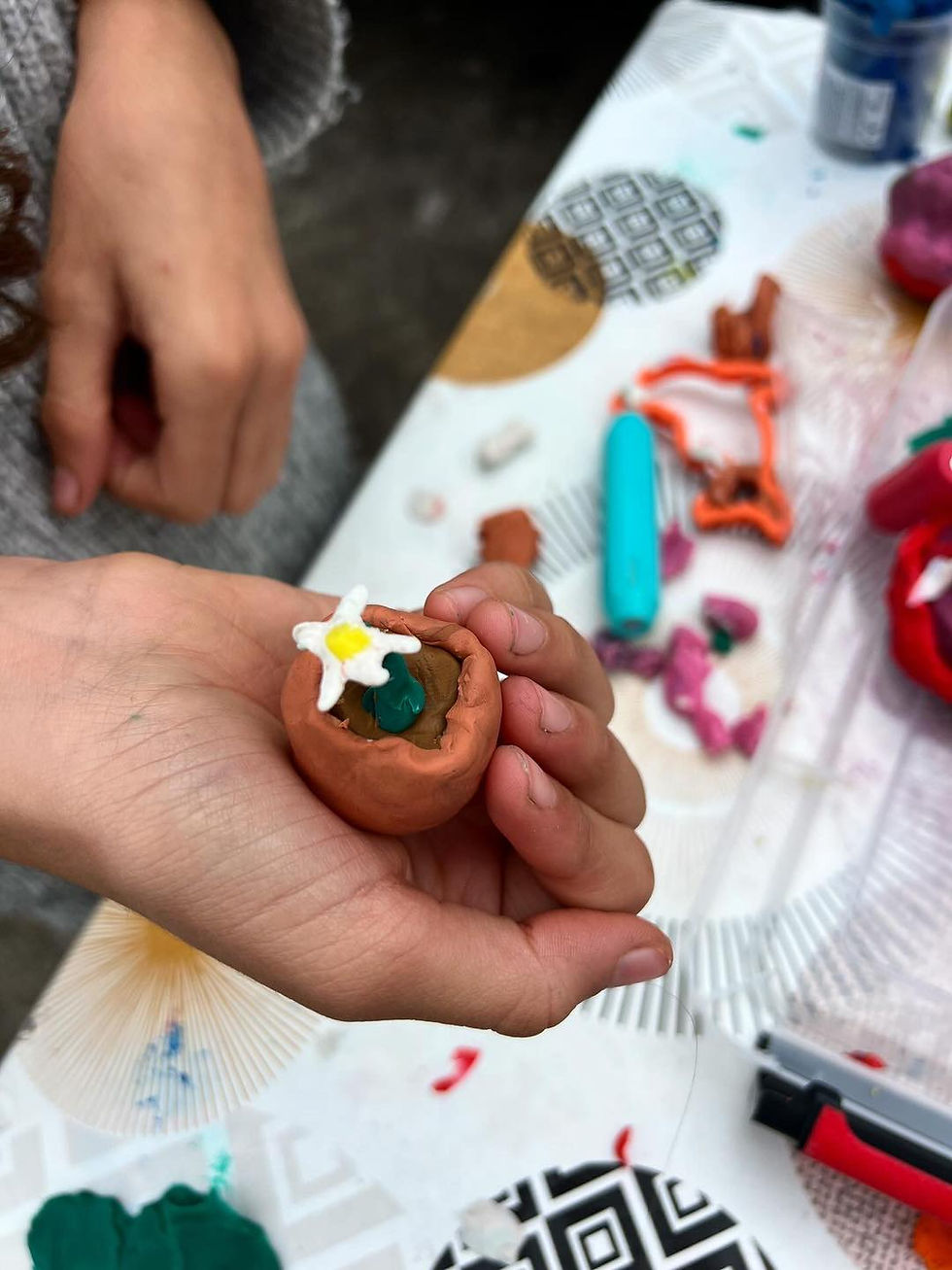Hospitality, resistance, community
- Art Refuge

- Dec 15, 2017
- 3 min read

Across the two days we witnessed many examples of hospitality, resistance and community amongst Calais residents, charity workers and refugees. This is against the tide of ongoing abusive treatment by the State, and a need for everyone to keep up energy levels in this already harsh period of the Winter.
THURSDAY
HOSTEL The homeless hostel has been unusually busy in this recent cold weather with people sleeping in the reception area and a lot of people milling around when we arrived. Sitting at our friend’s bedside he told us about another man we commonly know who has claimed asylum in France and lives in Calais. Each evening he goes to the station to greet people as they arrive in order to offer them room for the night in his small attic flat, so hard does he find it to imagine people sleeping in the cold, wind, snow and rain when he himself has shelter. We also looked together at an old book of African birds that we had brought with us, our friend recalling specific bird song – finding life and knowledge in the pages, and connection with home – delighting us all and enabling us to better understand and share in another enriching detail of his life.
NEW SECOURS CATHOLIQUE DAY CENTRE In spite of some hesitancy about coming to a new place in town, there were about 50 individuals, mostly from east Africa that used the large day centre that opened in the centre of town on Monday.
Within the new space we taped up our large map and laid out our familiar materials. Individuals gradually joined us, sitting for longer, allowing themselves to tell a bit more than before – through drawings or conversation – much more possible if you are physically warm and feel respected.
FRIDAY
SECOURS CATHOLIQUE TEAM MEETING At the weekly meeting, individuals spoke about the new centre. They talked in turns about the joy they get from being able to operate from the right space and offer up the right tools for the refugee community trying to survive in their midst. Words such as ‘peace’ and ‘serenity’ were used when speaking about the first sessions that have taken place in their large and beautifully presented new space in the centre of town.
One worker described how she has so enjoyed greeting people with an invitation to charge phones, a warm space, hot drinks, activities.
This is not to say that things are going to be easy. Someone described how the young men would come in for a bit and then go back outside so as not to get too used to the warm atmosphere. They spoke about the start of the story of homelessness in which it is difficult to adapt to being inside, in which one’s mentality changes.
There was discussion about the need to get a welcome balance as a day centre rather than a night shelter – and yet acknowledgment that some individuals will need to sleep having been outside and awake all night. Workers described how they found refugees covered in snow on Monday and needed to look for signs of hypothermia.
A detailed discussion took place about whether to provide Wifi in the space – and there was general agreement that connection with family and friends is important as well as an atmosphere of choice within the space – when individuals’ freedoms are so restricted outside.
Several described the ongoing harassment they themselves receive from the police and the need to keep safe as well as vocal. The media might change something.
SAFE HOUSE Following our usual pattern, a landscape developed across the table with eight young men and several workers joining us. Two teenagers aged 15, who had travelled on their long journey together from Eritrea, took it in turns to build a beautiful house and environment for it. For one of the boys this was his first visit to the safe house.
One young man with whom we have sat at the table over several months joined with us in an intelligent, imaginative and engaging conversation about mapping – describing in intimate detail how he used google maps to chart his journey from Eritrea – as well as his general fascination with geography, contours and navigation. We spoke about the role of the stars as well as the wind direction of the sand in the Sahara desert to help work out which direction to travel in.
Boys in the house are given the chance to use the space in the way they individually need it. The tenets of hospitality, resistance and community ring very true here – as they did earlier in the large Secours Catholique space.



Comments